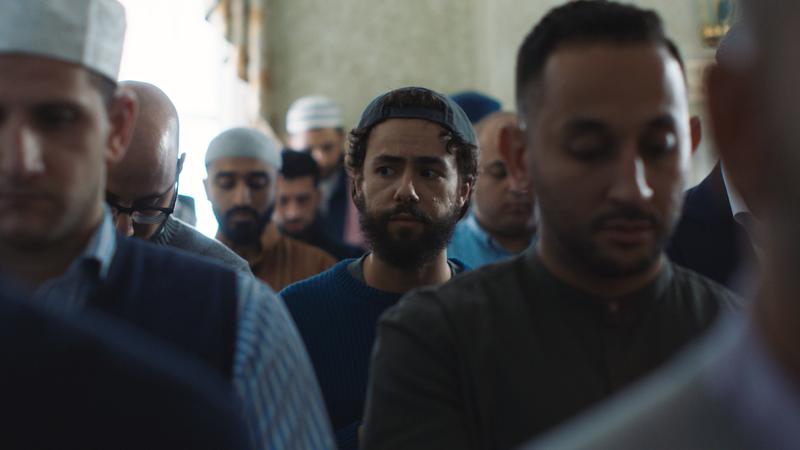
There's a scene in the first episode of Ramy, the Hulu series about a 20-something Egyptian American guy living in the suburbs of New Jersey, when the lead character, played by comedian Ramy Youssef, decides he wants to be a 'good Muslim' and meet his future wife. So he goes on a date with a woman his parents have set him up with. It's an incredibly awkward, chaperoned date, but they somehow get rid of the chaperone, and she asks Ramy, "What, I don't get a goodnight kiss?" Then things take a truly surprising turn when she makes another request.
"I want you to choke me," she says. "Use both hands."
I watched this scene play out on a big screen at a launch party in Soho last month, one primarily populated by Arab and South Asian actors, writers, filmmakers and activists — a glamorous brown crowd — and yet, at that moment, one could feel everyone's jaws collectively drop. This was uncharted territory.
Ramy is one of a flurry of recent shows in the US centered on Muslim stars like Hasan Minhaj, Riz Ahmed, and Aziz Ansari (not to mention British shows like Man Like Mobeen and Informer). Collectively, these shows are creating a paradigm shift in American entertainment.
"A new generation is basically redefining the stereotypical roles that I was witnessing growing up," said writer Wajahat Ali.
By which he meant the stereotype of the angry Muslim man, screaming Allahu Akbar or the perpetually submissive Muslim woman. Now, Muslims are in the suburbs and they're living their lives in interesting, complicated and provocative ways. They're actual human beings.
These characters feel authentic because they're often written by people who have grown up in immigrant communities, and increasingly, by women.
Sharbari Ahmed is of Bangladeshi descent and said the current moment "is creating a lot more opportunities for writers such as myself."
Ahmed worked on the ABC show Quantico, where she said Muslim characters were "doing things that are out of the stereotype. Even the hijabi agent. They were training, they were solving crime, [and] looking fabulous the entire time."
Ahmed's been asked to write a pilot for a historical series, set in the year 1024 in Andalucia, Spain. An extraordinarily liberal moment in Muslim history, she said, when Jews and Muslims lived side by side and competed in poetry slams. Similarly, Maysoon Zayid is a comedian with cerebral palsy who has a development deal with ABC to create a sitcom loosely based on her own life.
With all this progress has come some pushback. Ramy, for instance, has been critically acclaimed. But Ali said its raciness and unvarnished depictions of Muslim life have prompted some Muslim-American community leaders to label the show "debauched."
"So he has not gotten that type of robust support and backing from American Muslim organizations and religious leaders and influencers that one would expect, precisely because it shows him having sex with a girl in a car."
"But when you talk to Muslims they're like, 'dude, this was my life.'"
